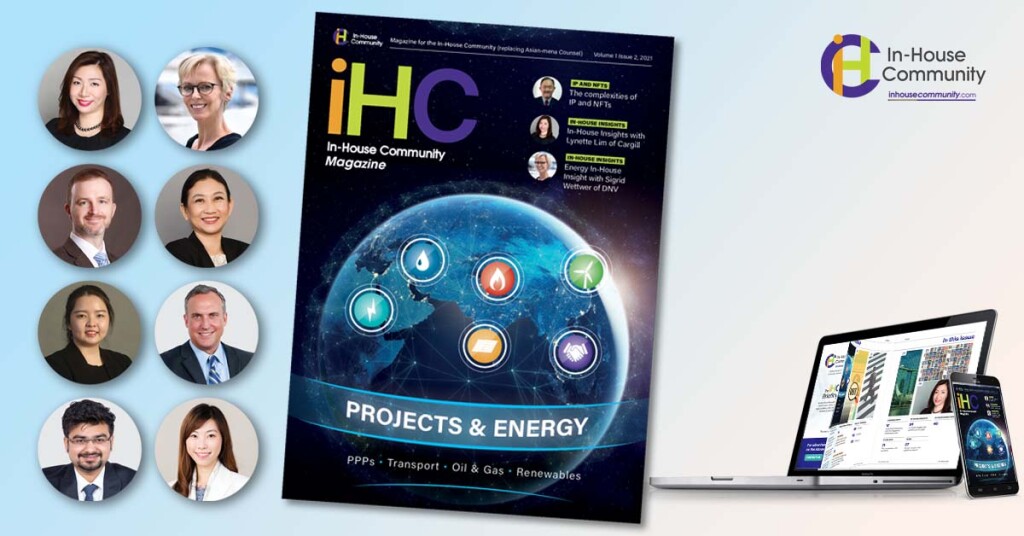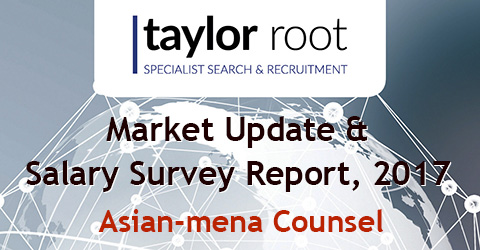Q: Tell Us A Little About Your Professional Background And How You Came To Be In Your Current Role?
I am currently the Asia Pacific Regional General Counsel for Cargill. I have direct and indirect responsibility for the entire Asia Pacific Law team made up of more than 50 lawyers and legal personnel located in Singapore (where I am based), India, Thailand, Vietnam, Philippines, Indonesia, Australia, China, Japan and Korea. I began my career in a boutique law firm in Singapore where I learned to apply legal critical thinking and develop my technical skills for negotiating deals. In my mind, the best deal is done when all parties go away feeling they have snagged a good deal for themselves and no one feels ripped off. After about six years at a private practice, I moved to my first in-house role with some amount of trepidation since I had no idea how it might change my career path. Over the course of the next 17 years, I worked with three different companies with a diverse and evolving portfolio across three different continents. In those roles I developed a keen interest in how the law interacts with business, the importance of diversity and inclusion and the dynamics of leadership and talent management.
Q: What Aspects Of Your In-House Role Do You Most Enjoy?
I see myself as a “strategic dots-connector” when I help businesses achieve a commercial goal or when I guide my law team to make good judgment calls. I am a corporate commercial lawyer by training and have always enjoyed the process of understanding objectives, figuring out the crux of issues and finding a simple path to a solution. My career has taught me an international mindset and cultural sensitivity, and it is important to use these skills to build our people, connect the dots and ensure the companies I work with can grow.
Q: What Do You Think Are The Biggest Challenges Facing In-House Lawyers Today?
When I first moved in-house, I did not know what to expect but I knew clearly what I never want to be. The in-house law department is often unfairly painted as a back-office support team which must constantly justify its existence and becomes the mailbox between the company and external law firms. This wasn’t the case for me. But if it was, I would have run screaming back to private practice many years ago. Today, I think the biggest challenge for in-house lawyers is to be confident of their role within an organization. If an in-house legal team addresses only “legal issues” rather than “commercial issues,” then it will limit its overall relevance and impact. The role of an in-house lawyer is to fully understand the company’s operations, strategies and risk appetite so they can help chart a way forward legally and practically. Law is integral to the whole process of business and in-house lawyers must constantly elevate their strategic thinking, business acumen and sieve through the noise to spot any relevant market, geopolitical or regulatory trends.
If an in-house legal team addresses only “legal issues” rather than “commercial issues,” then it will limit its overall relevance and impact.
Q: How Is Technology Changing The Way You Work?
We have all heard how technology like artificial intelligence (AI) may replace lawyers’
jobs. To some extent this will be true – certain types of legal work can be commoditized or made more efficient. But it doesn’t mean we will all be out of jobs. Again, if in-house (or any) lawyers do not elevate the value they can bring, then they do risk being made obsolete by machines. Personally, it excites me to think of ways to integrate technology into day-to-day legal work. Law departments can harness the power of the big data to spot trends, pre-empt issues, plan resources and make better decisions. The problem is the overwhelming and daunting number of legal tech tools available. All too often, law departments must use a variety of systems for everything from document management and repository, contract automation, research, disputes and IP management to corporate secretarial management, legal training, invoicing, internal approvals and e-signatures. Unfortunately, these different tools often do not integrate which creates inefficiencies and a reluctance to adopt the tools.

Q: What Do You Most Look For In A Law Firm When Outsourcing Work?
Firstly, I identify what expertise I can build versus what I can buy. Generally speaking, expertise that can be bought falls into three buckets: a) repetitive, commoditized work cheaply outsourced at a fixed and predictable cost, b) high-risk work requiring special ad-hoc expertise and c) work to cover temporary volume peaks and manpower shortages. Each of these buckets are priced differently. Ultimately, I prefer to consolidate buying power and stick to a selected panel of solution-driven firms which are committed to building long-term relationship with my organization. They must also willingly try to understand my organization and give my team the loyalty we require. The ideal firm should also appreciate that billings are commensurate with value of their work (not the time spent).
Q: What Advice Would You Give To Young Lawyers Starting Out In Their Careers Today?
Be prepared to put in the hard work. Embrace technology and find opportunities to actively help your organization go digital and adopt innovation. If possible, take on overseas work postings because they will expand your horizon and enrich your life and professional experience in ways you can never imagine.
Q: What Is Your Hinterland (What Do You Most Like To Do Away From Work)?
My dream job is to travel the world as a spa reviewer and food critic!
If you require advice on any of the issues raised in this briefing, please contact the authors below.

Lynette Lim |
*This article is the IHC Magazine’s off-shore update for April 2021 issue. Click here to read the full magazine


















